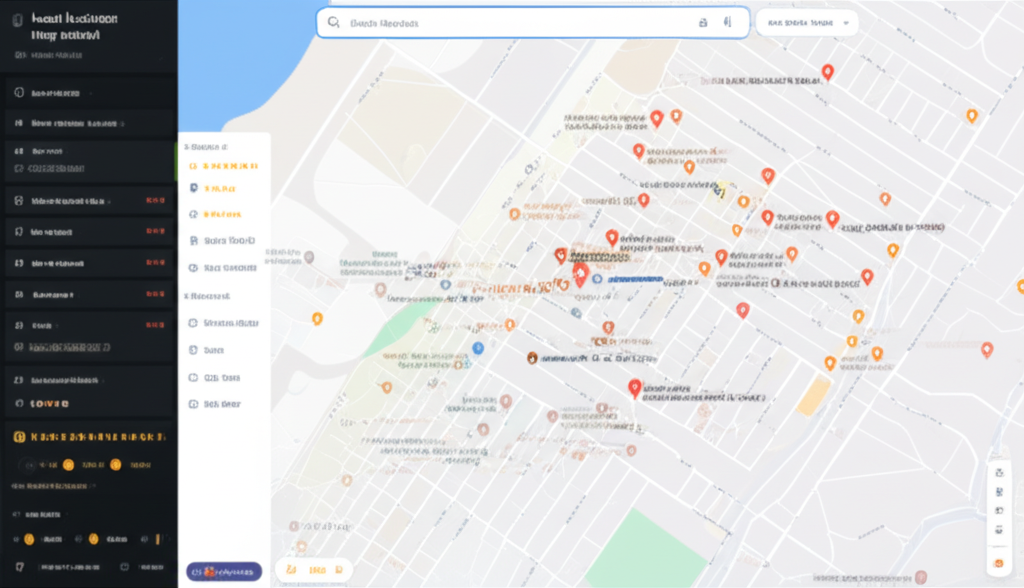Mastering Local SEO for Small Businesses: A Comprehensive Guide to Dominating Local Search
By John Smith on November 15, 2023 • Category: SEO

Mastering Local SEO for Small Businesses: A Comprehensive Guide to Dominating Local Search
For small businesses, Local SEO is not just an option; it's a necessity. In an era where "near me" searches are skyrocketing, optimizing your online presence for local customers can be the difference between thriving and merely surviving. This guide will walk you through the essential strategies to master local search engine optimization and attract more customers right in your neighborhood.
What is Local SEO and Why is it Crucial for Small Businesses?
Local SEO is the practice of optimizing your online presence to attract more business from relevant local searches. Unlike traditional SEO, which focuses on broader national or global rankings, local SEO targets geographic-specific queries. When someone searches for "coffee shop near me" or "best plumber in [your city]," local SEO ensures your business appears prominently in those results.
For small businesses, this is incredibly important because a significant portion of their customer base comes from their immediate vicinity. Ignoring local SEO means missing out on high-intent customers who are ready to make a purchase or use a service. It's about connecting with your community and becoming the go-to local solution.
Core Components of a Strong Local SEO Strategy
A successful local SEO strategy involves several key elements working in harmony:
1. Google Business Profile Optimization (GBP)
Your Google Business Profile (formerly Google My Business) is the cornerstone of local SEO. It's your free business listing on Google that appears in Google Maps and local search results. To optimize your GBP effectively, you need to claim and verify your business, complete all information sections accurately, add high-quality photos, write a compelling description using relevant keywords, and utilize posts and Q&A features to keep your profile active.
Optimizing your GBP is the single most impactful step you can take for local search visibility. Businesses with complete and optimized profiles are twice as likely to be considered reputable by consumers and receive 70% more location visits than those with incomplete profiles.
2. Local Citations (NAP Consistency)
Local citations are online mentions of your business's Name, Address, and Phone number (NAP). These can be on directories like Yelp, Yellow Pages, industry-specific sites, and social media platforms. Consistency is key – ensure your NAP information is identical across all online platforms. Inconsistencies can confuse search engines and hurt your rankings.
Focus on building quality citations from reputable and relevant directories. Consistent NAP information builds trust with search engines and reinforces your business's legitimacy. Start with major directories like Google, Yelp, Facebook, and Apple Maps, then expand to industry-specific directories relevant to your business.
3. Online Reviews and Reputation Management
Online reviews are powerful social proof and a significant local SEO ranking factor. Actively encourage satisfied customers to leave reviews on Google, Yelp, Facebook, and other relevant platforms. Respond to all reviews, whether positive or negative, as this shows you value customer feedback and are engaged with your community.
Address negative feedback professionally and turn negative experiences into opportunities to show excellent customer service. A strong positive review profile not only boosts your rankings but also builds customer trust. Studies show that 88% of consumers trust online reviews as much as personal recommendations.
4. On-Page SEO for Local Relevance
Your website also needs to be optimized for local relevance. Integrate your city/region and relevant keywords into your website's content, meta titles, descriptions, and headings. Create location pages if you serve multiple locations, with unique content and NAP information for each. Embed Google Maps on your contact page and implement local business schema markup to help search engines understand your business's details.
These on-page elements signal to search engines that your business is relevant to local searches. Include location-specific keywords naturally throughout your content, such as "best pizza in [your city]" or "[your city] plumbing services."
5. Local Link Building
While traditional link building focuses on high-authority domains, local link building involves acquiring backlinks from other local businesses, community organizations, and local news sites. Sponsor local events to get your business mentioned on event websites, join local chambers of commerce for directory listings, and collaborate with other local businesses through guest blogging or cross-promotion.
These links enhance your local authority and trustworthiness. Local links are particularly valuable because they demonstrate your connection to the community and provide context to search engines about your geographic relevance.
6. Mobile-Friendliness
Most local searches happen on mobile devices. Ensure your website is responsive, loads quickly, and provides a seamless user experience on smartphones and tablets. Google prioritizes mobile-first indexing, making this a critical factor for local SEO success. Your website should load in under 3 seconds and be easy to navigate on small screens.
Tools and Tips for Ongoing Local SEO Management
Managing your local SEO efforts doesn't have to be overwhelming. Use Google Search Console to monitor your website's performance in search results and Google Analytics to track local traffic and user behavior. Consider review management tools like Birdeye or Podium to help streamline review requests and responses.
Conduct regular audits to periodically check your NAP consistency and review profile. Stay updated with local SEO guidelines as they can change, so keep an eye on industry news and Google's official announcements. Set up Google Alerts for your business name and location to monitor mentions and opportunities.
Measuring Local SEO Success
Track key metrics to measure your local SEO success: local search rankings for target keywords, Google Business Profile views and actions, website traffic from local searches, phone calls and direction requests, and online review quantity and quality. Use tools like Google Analytics, Google Search Console, and your Google Business Profile insights to monitor these metrics regularly.
Common Local SEO Mistakes to Avoid
Avoid these common pitfalls: inconsistent NAP information across platforms, neglecting Google Business Profile optimization, ignoring online reviews, using generic content instead of location-specific content, and focusing only on Google while ignoring other local directories and platforms.
Conclusion
Mastering local SEO is a continuous process, but the rewards for small businesses are substantial. By focusing on your Google Business Profile, maintaining NAP consistency, actively managing reviews, optimizing your website, building local links, and ensuring mobile-friendliness, you can significantly improve your visibility in local search results. This will lead to more foot traffic, more phone calls, and ultimately, more revenue for your business. Invest in your local search presence today and watch your business grow within your community.
